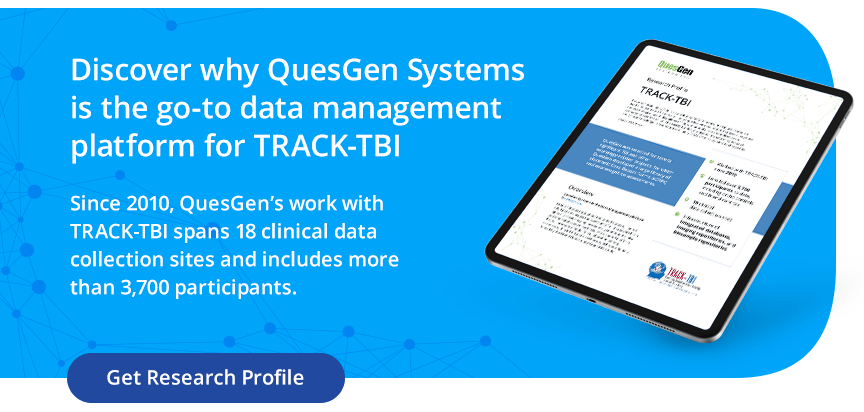TRACK-TBI indicates that mild traumatic brain injury patients show long-term effects one-year post-injury
by Barbara Maley | Oct 01, 2020 | Brain-Health Assessments, TBI | comments

Current standards of care assume that patients recover from mild traumatic brain injuries (mTBIs) within three months. A major study that appeared earlier this year in JAMA Neurology presents findings that suggest otherwise.
Authors from Harvard Medical School, the Baylor College of Medicine and 38 other academic centers in the United States examined persistent, injury-related impairment in patients who presented at level one trauma centers with mTBIs.
They compared the recovery of daily function with that of patients with a peripheral orthopedic traumatic injury. Their conclusions call for more systemic follow-up of patients with mTBIs to provide treatment and reduce the risk of a range of chronic, disease-associated problems.
Design and methods
Investigators gathered data via the Transforming Research and Clinical Knowledge in Traumatic Brain Injury (TRACK-TBI) cohort on the natural history of recovery in 1154 patients with mTBIs and a control group of 299 orthopedic traumatic injury (OTC) patients.
The Glasgow Outcome Scale Extended scale score, which showed injury-related functional limitations across many areas of life at two weeks and then at three, six and 12 months post-injury, measured primary outcomes.
The authors then used CT scans of patients with mTBIs to identify those with (CT+) and without (CT-) acute intracranial findings and to evaluate how the status affected recovery outcomes.
Results
Most patients who had suffered either an mTBI or orthopedic traumatic injury reported related functional limitations two weeks post-event. At 12 months, however, 53% of mTBI patients reported persistent functional limitations as compared to 38% of orthopedic patients.
A large percentage, 61%, of mTBI CT+ patients reported impairment as compared to 49% of mTBI CT- patients. In addition, a greater percentage of mTBI CT- patients reported impairment than those with orthopedic trauma.
Impact
The data from this multi-center cohort study indicate that patients with mTBIs suffer longer-term consequences and health considerations than has been previously assumed. A mild traumatic brain injury can affect a patient’s daily physical, psychological and emotional function and quality of life one year later.
Such observations suggest a need for follow-up in working with the patient population to assess functional limitations and treat potential complications.
Looking forward
Patients with brain injury present a complex and evolving population that deserves the forefront of research and evidence-driven clinical care. TRACK-TBI represents one among a substantial range of related studies for which QuestGen has provided comprehensive data collection, curation, and management solutions. These include CENTER-TBI, a prospective cohort study of more than 40 centers in 20 countries across Europe and CARE, a study that followed more than 30,000 college athletes and cadets post-concussive injury.
QuesGen’s well-established roots lie in academia. Today, clinical teams worldwide recognize the value of its experience, and more than 100 hospital emergency departments globally use QuesGen as well. QuesGen offers a comprehensive TBI data structure, which is an acute injury model that offers more than 50 pre-built instruments and features.
Time is of the essence, both in terms of large groups of investigators’ schedules and in terms of patients living with traumatic brain injury. QuesGen can also design innovative, effective study-specific solutions that save time and free authors to focus on results and analysis.
Learn more regarding collaboration with QuesGen for the benefit of patients today and in the future.

